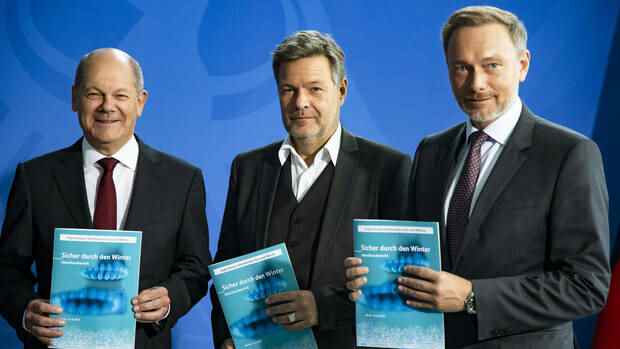Brussels It’s almost a ritual: The energy subsidies for companies and households must be fiscally neutral, the 19 finance ministers confirmed again on Monday. The aid should be targeted and temporary so that it does not drive inflation.
So much for the theory. The reality is different. A lot helps a lot, according to this motto the European governments are always announcing new relief packages. No one wants to be left behind when it comes to helping citizens through the harsh winter. What often falls by the wayside is the necessary measure. A real subsidy race is taking place across Europe.
Germany is at the forefront with the “double boom” of 200 billion euros. Together with the previous relief packages, the sum is significantly higher. Things are no better elsewhere: according to the Bruegel Institute in Brussels, European governments have so far announced 573 billion euros in subsidies. Some, like the “double wumms”, are designed to last several years.
“Targeted and temporary” is different. The finance ministers emphasize that they closely coordinate their fiscal policy. But in the crisis everyone seems to be next to themselves, the only criterion is the applause of the home crowd.
Top jobs of the day
Find the best jobs now and
be notified by email.
The expansive fiscal policy means that the European Central Bank is having a harder time fighting inflation. The central bankers are forced to raise interest rates even more in order to keep inflation in check. Monetary and fiscal policy therefore work against each other.
>> Read also: Does billions in aid make everything worse? Top economists criticize energy subsidies
The relief packages can initially curb energy price inflation, as the examples of France and Spain show. But as soon as market prices fall again, as was the case recently, this effect disappears. In particular, the aid to households, which is distributed equally to those in need and those who do not, according to the watering can principle, threatens to stimulate demand and further exacerbate inflation.
While the effectiveness of the relief packages against inflation can be doubted, one thing is certain: the renewed billions in spending will continue to increase the debt in the euro zone. After the high expenses of the Corona period, this is no trifle. It’s time for governments to stop reacting to every crisis with new subsidies.
More: France’s finance minister calls for tough EU response to US subsidies
